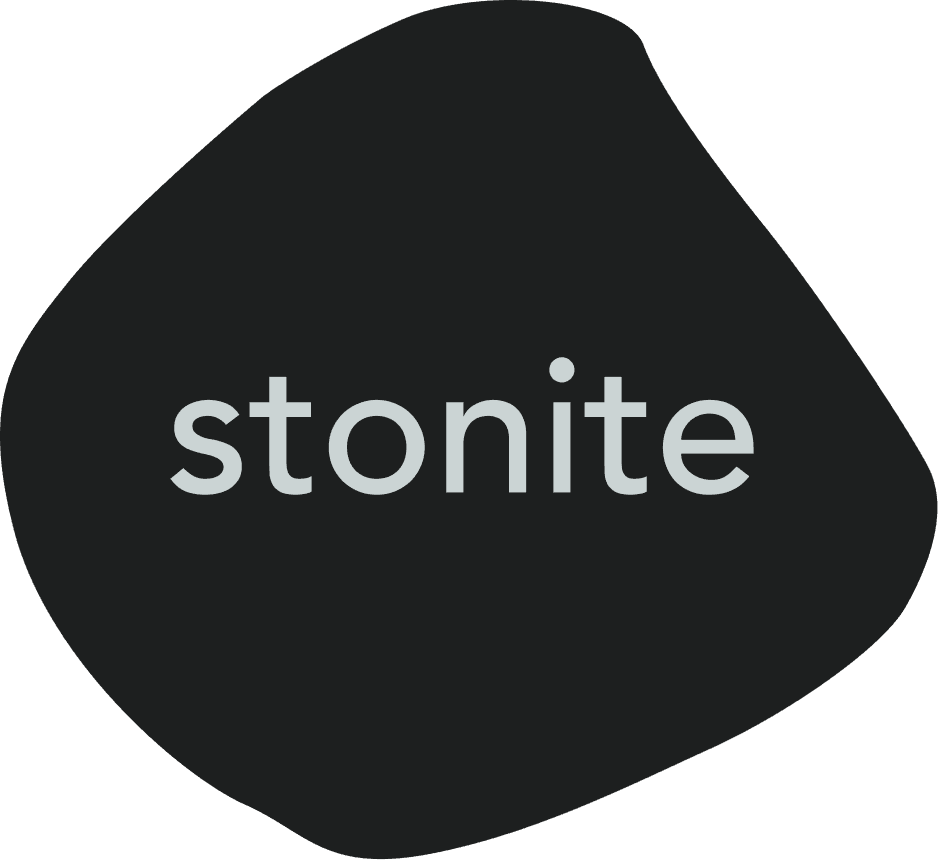SEO Strategy Service
Unlock the power of search engines and drive organic traffic to your website with our comprehensive SEO strategy service. We'll work with you to develop a customized plan that targets your ideal audience, improves your website's visibility, and boosts your online presence.
Content Strategy & Creation
We develop a content strategy that aligns with your SEO goals and target audience. We create high-quality, informative, and engaging content that is optimized for search engines and provides value to your users.
Keyword Research & Strategy
We conduct thorough keyword research to identify relevant and high-volume search terms that your target audience is using. Based on this research, we develop a comprehensive keyword strategy that focuses on driving targeted traffic to your website.
Off-Page Optimization
We implement off-page optimization strategies, including link building, social media marketing, and directory submissions, to increase your website's authority and credibility in the eyes of search engines.
On-Page Optimization
We optimize your website's content, including page titles, headings, meta descriptions, and image alt text, to improve its relevance and visibility in search results. We also ensure that your website is structured correctly for search engine crawlers.
Reporting & Analysis
We provide regular reports and analysis to track your SEO progress and identify areas for improvement. We use data-driven insights to ensure that your strategy is constantly evolving and delivering the desired results.
Technical SEO Audit
We conduct a thorough technical SEO audit to identify and fix any technical issues that may be hindering your website's performance. This includes optimizing website speed, mobile responsiveness, and structured data implementation.
Design
We craft meaningful digital experiences that captivate and engage, blending creativity with strategy. From concept to execution, we make your brand stand out.
We shape distinctive brands that resonate, ensuring every element reflects your business’s core values.
Our branding process builds emotional connections, making your brand memorable and positioning it for long-term success in the market.
Getting started with SEO can seem overwhelming, but it's simpler than you think. Here are some steps to get started: 1. **Understand your target audience:** Identify your ideal customers and their search queries. 2. **Conduct keyword research:** Identify relevant keywords that your target audience is using. 3. **Optimize your website content:** Use keywords in your page titles, headings, meta descriptions, and content. 4. **Improve your website's technical aspects:** Ensure that your website is mobile-friendly, fast, and secure. 5. **Build backlinks:** Acquire backlinks from high-quality websites to your website. 6. **Track your progress:** Monitor your website's search performance and make adjustments as needed. By taking these steps, you can start to improve your website's ranking in search results and attract more organic traffic.
Creating high-quality, relevant, and engaging content is crucial for SEO. Here are some tips to improve your website's content for SEO: * **Keyword research:** Use relevant keywords in your content to attract targeted traffic. * **Content optimization:** Structure your content with headings, subheadings, and bullet points to improve readability and searchability. * **Long-tail keywords:** Use long-tail keywords to target specific search queries. * **Content length:** Aim for longer content that provides comprehensive information and answers user queries. * **Internal linking:** Link to other relevant content on your website to improve user experience and search engine crawlability. By following these tips, you can create content that is both engaging for users and optimized for search engines.
Improving your website's loading speed is crucial for both user experience and SEO. Here are some tips to optimize your website's speed: * **Optimize images:** Compress images without sacrificing quality. * **Minimize HTTP requests:** Reduce the number of files that need to be loaded. * **Enable browser caching:** Allow browsers to store website files locally for faster loading. * **Use a content delivery network (CDN):** Deliver website content from servers closer to users. * **Minimize code:** Reduce the amount of code on your website. * **Optimize plugins and themes:** Ensure that your website's plugins and themes are up-to-date and optimized for speed. By implementing these tips, you can improve your website's loading speed and provide a better user experience, leading to increased conversions and improved SEO.
Website security is crucial for both user trust and SEO. Google prioritizes websites that are secure and protect user data. Here are some tips to improve your website's security: * **Use HTTPS:** Implement an SSL certificate to secure your website's connection. * **Keep software up-to-date:** Regularly update your website's CMS, plugins, and themes to patch security vulnerabilities. * **Strong passwords:** Use strong passwords for all website accounts. * **Two-factor authentication:** Enable two-factor authentication for sensitive accounts. * **Regular security audits:** Conduct regular security audits to identify and address potential vulnerabilities. By prioritizing website security, you can protect your users' data, improve your website's reputation, and enhance your SEO performance.
Tracking the progress of your SEO strategy is essential for measuring its effectiveness and making necessary adjustments. There are several tools and metrics that you can use to track your progress, including: * **Google Analytics:** Track website traffic, user behavior, and conversions. * **Google Search Console:** Monitor your website's search performance, including keyword rankings, impressions, and clicks. * **Rank tracking tools:** Monitor your website's ranking for specific keywords. * **Backlink analysis tools:** Track backlinks to your website and their quality. By regularly monitoring these metrics, you can identify areas for improvement and ensure that your SEO strategy is delivering the desired results.
The time it takes to see results from SEO varies depending on several factors, including the competitiveness of your industry, the current state of your website, and the scope of the SEO strategy implemented. While some improvements may be visible within a few months, it typically takes 6-12 months to achieve significant and sustainable results. It's important to remember that SEO is a long-term investment, and consistent effort is required to maintain and improve your ranking over time.
There are several common SEO mistakes that businesses often make. These include: * **Keyword stuffing:** Using too many keywords in your content, which can be penalized by search engines. * **Low-quality content:** Creating thin or irrelevant content that doesn't provide value to users. * **Ignoring mobile optimization:** Failing to make your website responsive and accessible on mobile devices. * **Building unnatural backlinks:** Acquiring backlinks from low-quality websites or through black hat techniques. * **Not tracking your progress:** Failing to monitor your SEO performance and make necessary adjustments. By avoiding these mistakes, you can improve your chances of success with your SEO strategy.
There are many SEO tools available to help you with your SEO strategy. Some popular tools include: * **Google Analytics:** Track website traffic and user behavior. * **Google Search Console:** Monitor your website's search performance. * **SEMrush:** Keyword research, competitor analysis, and backlink analysis. * **Ahrefs:** Backlink analysis, keyword research, and content analysis. * **Moz:** Keyword research, rank tracking, and site audits. * **Yoast SEO:** On-page optimization plugin for WordPress. * **Rank Math SEO:** On-page optimization plugin for WordPress. These tools can provide valuable insights and data to help you optimize your website and improve your SEO performance.
Hiring an SEO agency offers several benefits, including: * **Expertise and experience:** SEO agencies have a deep understanding of search engine algorithms and best practices, allowing them to develop effective strategies that deliver results. * **Time-saving:** Outsourcing your SEO to an agency frees up your time to focus on other aspects of your business. * **Data-driven approach:** SEO agencies use data analytics to track progress, identify areas for improvement, and ensure that your strategy is constantly evolving. * **Cost-effectiveness:** While hiring an SEO agency requires an investment, the long-term benefits of improved organic traffic and conversions often outweigh the cost.
An SEO strategy is a comprehensive plan that outlines how you'll improve your website's ranking in search engine results pages (SERPs). It involves a range of tactics, including keyword research, on-page optimization, off-page optimization, and technical SEO. A well-crafted SEO strategy helps your website attract more organic traffic, generate leads, and increase conversions.
Keyword research is the process of identifying relevant keywords that people are using to search for information related to your business. It's a crucial part of any SEO strategy because it helps you understand your target audience's search intent and optimize your website content to attract those searches. By using the right keywords, you can improve your website's visibility in search results and attract more qualified traffic.
Off-page optimization refers to activities that are done off your website to improve its ranking in search results. This includes tactics like: * **Link building:** Acquiring backlinks from high-quality websites to your website. * **Social media marketing:** Promoting your website and content on social media platforms. * **Directory submissions:** Listing your website in relevant online directories. * **Brand building:** Building a strong brand reputation and engaging with your target audience. Off-page optimization helps to increase the authority and credibility of your website in the eyes of search engines, leading to higher rankings.
On-page optimization refers to the process of optimizing individual web pages on your website to improve their ranking in search results. This involves a range of tactics, including: * **Keyword optimization:** Using relevant keywords in page titles, headings, meta descriptions, and content. * **Content optimization:** Creating high-quality, informative, and engaging content that is relevant to your target audience. * **Technical optimization:** Ensuring that your website is technically sound and optimized for search engines. * **Image optimization:** Using alt text and file names that include relevant keywords. By implementing on-page optimization strategies, you can improve the relevance and authority of your web pages, making them more attractive to search engines.
Technical SEO involves optimizing your website's technical aspects to improve its crawlability and indexability by search engines. This includes tasks like: * **Website speed optimization:** Ensuring that your website loads quickly. * **Mobile optimization:** Making your website responsive and accessible on mobile devices. * **Structured data implementation:** Using schema markup to provide search engines with more information about your website's content. * **URL optimization:** Creating clean and descriptive URLs. * **XML sitemap creation:** Submitting a sitemap to search engines to help them crawl and index your website. Technical SEO is crucial for ensuring that your website is accessible and easily understood by search engines.
White hat SEO refers to ethical and legitimate SEO practices that comply with search engine guidelines. It focuses on creating high-quality content, building natural backlinks, and optimizing your website for user experience. Black hat SEO, on the other hand, involves using unethical and manipulative tactics to improve your website's ranking. These tactics often violate search engine guidelines and can result in penalties or even a ban from search engines. It's essential to stick to white hat SEO practices to ensure the long-term success and sustainability of your SEO strategy.
The future of SEO is constantly evolving as search engines continue to improve their algorithms and user expectations change. Some key trends to watch include: * **Voice search:** Optimize your content for voice search queries. * **Artificial intelligence (AI):** AI is being used to personalize search results and provide more relevant content. * **User experience (UX):** Websites that provide a positive user experience will be rewarded by search engines. * **Mobile-first indexing:** Google is indexing websites for mobile devices first. * **Content marketing:** Creating high-quality, informative, and engaging content will remain crucial for SEO. By staying up-to-date with the latest SEO trends, you can adapt your strategy to ensure that your website remains competitive and visible in search results.
Local SEO is essential for businesses that operate in a specific geographical area. It helps to improve your website's visibility in local search results, attracting customers who are searching for businesses near them. Local SEO involves optimizing your website for location-based keywords, creating a Google My Business profile, and managing local citations. By implementing local SEO strategies, you can increase your visibility in local search results and attract more customers to your business.
Social media plays an important role in SEO by: * **Increasing brand awareness:** Sharing your content on social media helps to increase your brand visibility and reach a wider audience. * **Driving traffic to your website:** Social media posts can drive traffic to your website, especially if they include links to your content. * **Building backlinks:** Sharing your content on social media can lead to backlinks from other websites, improving your website's authority and ranking. * **Improving content visibility:** Social media engagement can help to improve your content's visibility in search results. By utilizing social media effectively, you can enhance your SEO efforts and achieve better results.
User experience (UX) is becoming increasingly important for SEO. Google prioritizes websites that provide a positive user experience, including factors like: * **Website speed:** Users expect websites to load quickly. * **Mobile responsiveness:** Websites should be accessible and easy to use on mobile devices. * **Navigation:** Websites should have clear and intuitive navigation. * **Content quality:** Content should be informative, engaging, and relevant to users. * **User engagement:** Websites should encourage user interaction and engagement. By focusing on UX, you can improve your website's ranking in search results and provide a better experience for your users.
SEO is crucial for any business that wants to succeed online. It helps you reach a wider audience, build brand awareness, and drive more traffic to your website. By improving your search engine ranking, you can attract more potential customers, generate leads, and ultimately boost your sales. In today's digital landscape, SEO is no longer an option, it's a necessity.

















